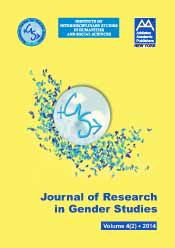FEMINISM IN POST-REVOLUTIONARY IRANIAN CINEMA
FEMINISM IN POST-REVOLUTIONARY IRANIAN CINEMA
Author(s): Aniţa Grigoriu, Silviu ŞerbanSubject(s): Gender Studies
Published by: Addleton Academic Publishers
Keywords: Iranian society; feminist film; Islamic feminism; Iranian cinema; female director
Summary/Abstract: The political changes of the 1979 revolution in Iran have produced important effects on the women’s rights. After 1979 the new theocratic power imposes the modifications of women’s social position. Especially, after the end of the Iran-Iraq war, the voice of women began to be heard in Iranian society, arguing within the religious tradition and demanding full equality with men, both in public and private life. Since the late 1980’s, Iranian cinema became visible in the international film festival circuit through male directors such as Abbas Kiarostami, Jafar Panahi or Mohsen Makhmalbaf. In some of their films feminist themes occur adjacently, as in Pahavi’s The Circle (2000), Makhmalbaf’s Kandahar (2001) and Kiarostami’s Ten (2002). But the powerful movies focused on feminist messages belong to female directors such as Rakhshan Bani-Etemad, Marziyeh Meshkini, Samira Makhmalbaf and Tahmineh Milani.
Journal: Journal of Research in Gender Studies
- Issue Year: 4/2014
- Issue No: 2
- Page Range: 967-978
- Page Count: 12
- Language: English
- Content File-PDF

